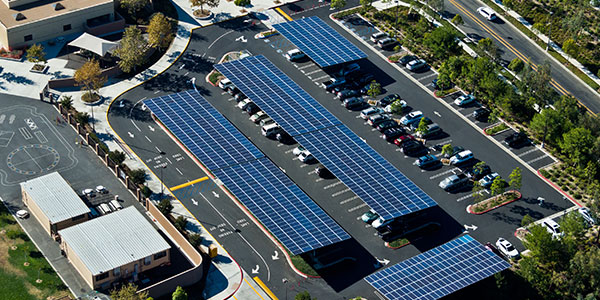By Christen Smith
FERC on Thursday exempted TerraForm Power from certain requirements of the Public Utility Holding Company Act of 2005, ruling that it doesn’t need access to the renewable energy company’s accounting records, including that of its fuel cell subsidiaries.
However, TerraForm must still notify FERC of material changes regarding its acquisition of electric utility companies not also considered public utilities, the commission clarified in its order (EL19-94).
TerraForm, headquartered in New York City, indirectly manages an international portfolio of wind and solar projects, including distributed generation and behind-the-meter solar facilities. In its petition filed in August, the company said that each of its public utility subsidiaries hold qualifying facility (QF) or exempt wholesale generator (EWG) exclusions from PUHCA reporting requirements. Some of these holdings sell power on the wholesale market, subject to Federal Power Act regulations, while others “operate solar photovoltaic facilities that sell energy only at retail.”
Its fuel cell subsidiaries, however, cannot qualify as EWGs “because they will sell energy at retail to commercial and industrial customers under contracts negotiated with such customers,” thus their rates are not subject to the commission’s jurisdiction, TerraForm argued. FERC’s regulations also disqualify others from a QF exemption because they use natural gas as fuel. Finally, the company said, its affiliation with utilities that provide jurisdictional transmission service — Smoky Mountain Transmission and Wind Energy Transmission Texas — will also extend to its fuel cell subsidiaries, contradicting the commission’s longstanding policy on granting PUHCA exemptions.
FERC granted the exemption, saying that although the company is affiliated with transmission companies providing jurisdictional service, its fuel cell subsidiaries will “make only retail sales and do not have franchised service territories or captive customers.”
“Therefore, there is no significant potential for transmission service customers to subsidize commission-jurisdictional wholesale sales,” FERC wrote. “In addition, Smoky Mountain’s transmission facilities are subject to a commission-jurisdictional open access transmission tariff, and the commission has access to the books, accounts, memoranda and other records concerning Smoky Mountain’s jurisdictional transmission rates under Section 301 of the Federal Power Act. Finally, we note that granting the requested exemption will not change the commission’s oversight of those holding companies with direct or indirect ownership interests in Smoky Mountain and Wind Energy.”
But FERC denied TerraForm’s request to waive it from change-in-fact reporting requirements for the acquisition of nonpublic utilities after it unsuccessfully argued that such information is already submitted via the FERC-65 notice.
“While TerraForm is correct that the FERC-65 filing requirements serve an informational purpose, ‘the addition of a new subsidiary company that is a public utility company or holding company of a public utility company represents a material fact that should be reported to the commission,’” FERC wrote. “This requirement includes public utility companies that may not be public utilities under PUHCA 2005, such as new electric utility companies that are part of the TerraForm [holding companies’] retail operations.”




